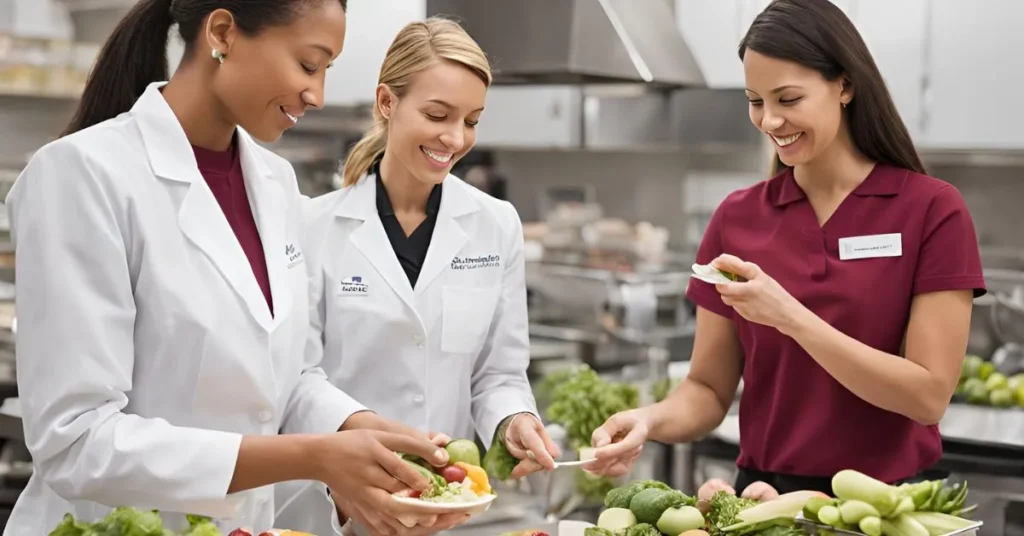The Student Dietetic Association (SDA) is a student-run organization typically found at universities and colleges offering nutrition and dietetics programs. These associations aim to enhance the academic and professional experience of students pursuing careers in nutrition and dietetics. By providing opportunities for networking, leadership, and community involvement, these associations play a key role in preparing future nutrition professionals.
This article explores the benefits, activities, and opportunities offered by these student-led associations and how they contribute to career development in the field of dietetics.
Purpose of the Association
The primary purpose of these student-led associations is to support students on their journey to becoming professionals in nutrition and dietetics. This support comes through various activities, such as workshops, guest lectures, and community outreach programs. These groups help students gain valuable experience, build connections, and develop skills that are crucial for success in their future careers.
Associations like these also aim to create a sense of community among students. This is especially important in specialized fields like dietetics, where collaboration and shared knowledge can help students navigate academic challenges and prepare for their professional lives.
Activities and Events
Student organizations in dietetics typically organize a variety of events throughout the academic year to engage members and provide opportunities for personal and professional growth. These events often include:
- Guest Speaker Presentations: Professionals from the field of dietetics are invited to speak about their career paths, share industry insights, and discuss the latest trends in nutrition science. These presentations offer students the chance to learn from experts and ask questions about their own career paths.
- Networking Events: These events allow students to connect with alums, industry professionals, and faculty members. Networking plays a critical role in career advancement, and through these events, students can build relationships that may lead to internships, job offers, or mentorship opportunities.
- Workshops and Skill-Building Sessions: Workshops are organized to help students with practical skills such as resume writing, interview preparation, and job searching. These sessions focus on preparing students for the competitive field of dietetics by equipping them with the tools needed for success.
- Community Service Projects: Many of these associations are involved in local community initiatives, such as food drives, health fairs, or nutrition education workshops. This not only benefits the community but also provides students with hands-on experience in applying their knowledge in real-world settings.
- Field Trips: Some associations arrange visits to healthcare facilities, food production plants, or dietetic service organizations, giving students a firsthand look at different career paths in the nutrition industry.
Leadership and Professional Development
Leadership development is a key component of student-run dietetic associations. Students can take on leadership roles within the organization, such as becoming a president, treasurer, or event coordinator. These leadership positions provide students with experience in organizing events, managing teams, and overseeing projects—all essential skills for future roles in dietetics and healthcare.
Beyond leadership, these associations are also a platform for professional development. Students have access to resources such as information on internships, scholarships, and certification programs, like the path to becoming a Registered Dietitian Nutritionist (RDN). The association often collaborates with larger professional bodies, such as the Academy of Nutrition and Dietetics, to give students more opportunities to stay connected to the broader field.
Community and Peer Support
One of the most valuable aspects of these student-led groups is the strong sense of community they foster among peers. Studying dietetics can be challenging, and having a support network of fellow students who share similar goals can make a significant difference. Associations often create study groups, organize tutoring sessions, or facilitate discussion panels on academic topics, helping students succeed in their coursework.
Students also benefit from the shared experiences of others who have already gone through various stages of the dietetics program. This peer support can guide students through difficult exams, application processes for internships, and even job hunting after graduation.
Educational Opportunities
Education goes beyond the classroom when students join these associations. Many groups organize supplementary lectures, workshops, or seminars focused on specific topics of interest within the field of nutrition. These include discussions on current research, new dietetic practices, or advancements in food technology. These additional learning opportunities help students stay up to date with the latest developments in the industry, making them more competitive as they enter the workforce.
Affiliation with National Organizations
Many university-based dietetic associations have affiliations with national organizations, such as the Academy of Nutrition and Dietetics (AND) in the United States. This affiliation provides students with access to a wider network of professionals, additional resources, and opportunities to attend national conferences or events. Participation in these larger networks allows students to broaden their perspectives and gain insights from the national and global dietetics community.
Volunteering and Community Outreach
Volunteering is a significant aspect of what these associations offer. Whether it’s organizing a food drive, offering nutrition education at local schools, or helping at a community health fair, these activities allow students to apply their academic knowledge in a practical setting. Volunteer opportunities like these help students gain real-world experience, build their resumes, and contribute to public health initiatives, all while developing soft skills such as communication, empathy, and teamwork.
Conference Attendance
Some student organizations facilitate student participation in regional or national conferences related to dietetics and nutrition. Attending these conferences allows students to learn from experts in the field, stay updated on emerging trends, and network with professionals. These events are also a great way for students to explore different career paths within dietetics, such as clinical dietetics, food service management, or public health nutrition.
Conclusion
Student-run dietetic associations are a crucial part of the academic and professional journey for students pursuing a career in nutrition and dietetics. These groups provide opportunities for networking, leadership development, hands-on experience, and community engagement, all while fostering a strong sense of peer support. By participating in these associations, students are better prepared for the challenges of the field, gaining the skills and connections needed to succeed as future dietitians and nutrition professionals.
FAQs:
What types of events do these organizations typically organize?
Events often include guest lectures from professionals, workshops on job preparation, networking events, community service projects, and field trips to healthcare facilities or food production plants.
Are there leadership opportunities available within these associations?
Yes, students can take on leadership roles such as president, event coordinator, or treasurer, which help build skills in organization, communication, and management.
How does joining a student dietetic organization benefit future career prospects?
These associations offer networking opportunities, access to internships, professional development workshops, and hands-on experience through volunteering, all of which enhance employability in the dietetics field.
Can non-dietetics majors join these organizations?
While the primary focus is on students studying nutrition and dietetics, some associations allow students from other majors to join, particularly those with an interest in health and wellness.
How do these groups support students academically?
Many associations organize study groups, tutoring sessions, and additional lectures or workshops to help students succeed in their dietetics coursework.
Top of Form
Bottom of Form


